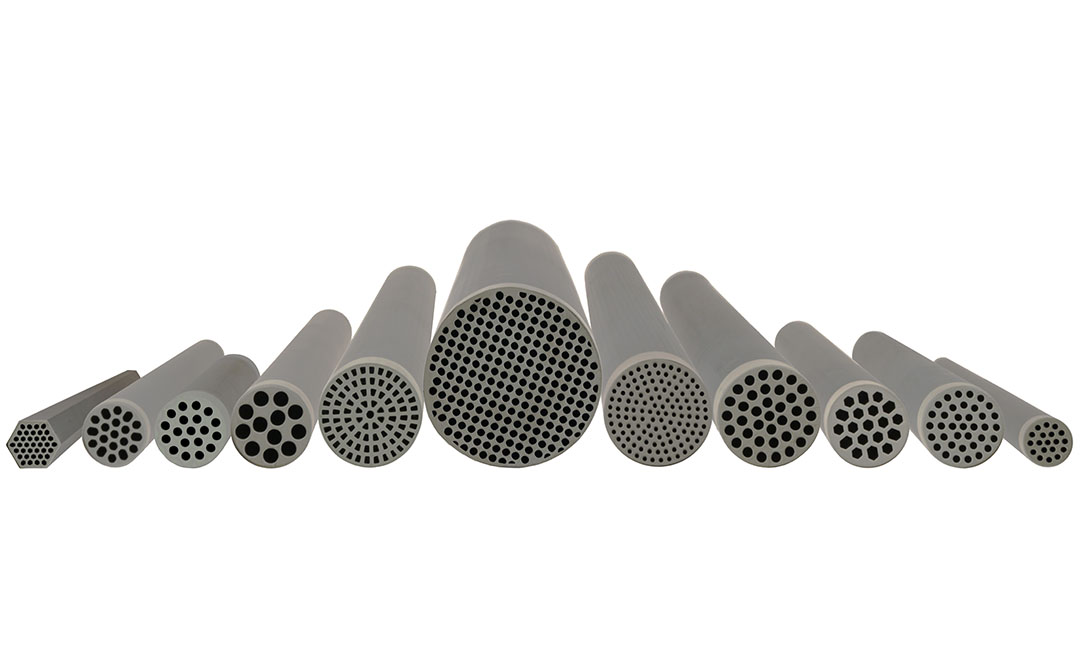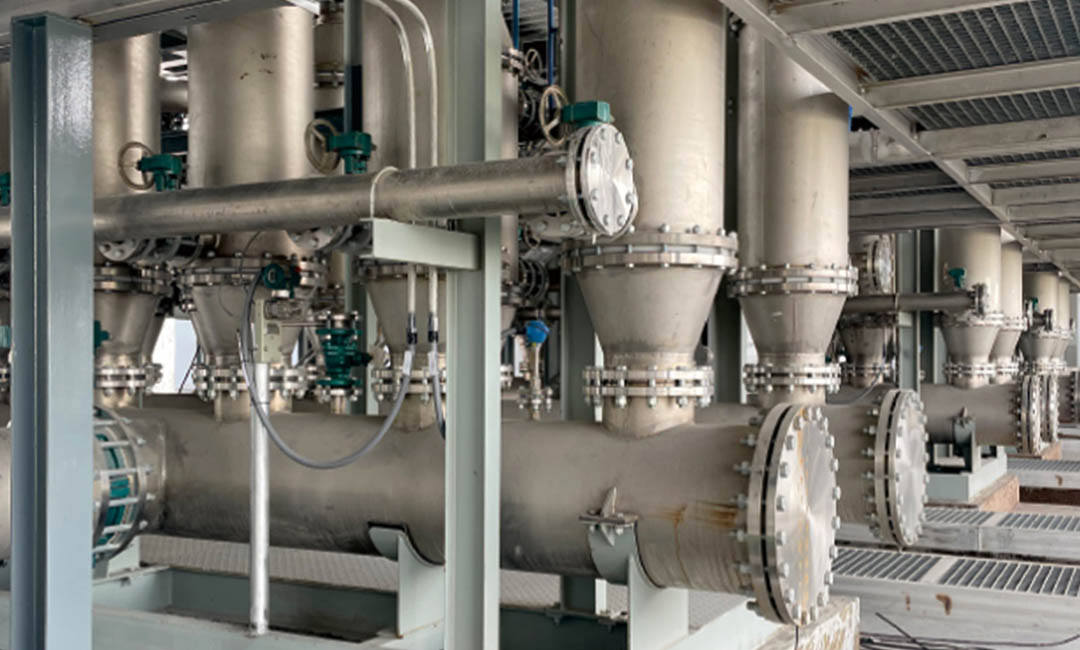Improved Efficiency in Gas Separation Processes
Gas separation processes are essential in various industries, including petrochemical, natural gas processing, and air separation. These processes involve the separation of different gases from a mixture, often using membranes as a separation medium. Silicon carbide (SiC) gas separation membranes have emerged as a promising technology for improving the efficiency of gas separation processes in modern industry.
One of the key advantages of SiC gas separation membranes is their high thermal and chemical stability. SiC is known for its excellent resistance to high temperatures and harsh chemical environments, making it an ideal material for gas separation applications. This stability allows SiC membranes to maintain their performance over extended periods, reducing the need for frequent maintenance and replacement.
In addition to their stability, SiC gas separation membranes also offer high selectivity and permeability. Selectivity refers to the ability of a membrane to separate specific gases from a mixture, while permeability refers to the rate at which gases can pass through the membrane. SiC membranes exhibit high selectivity for certain gases, allowing for precise separation of target gases from a mixture. At the same time, their high permeability enables fast and efficient gas separation processes, leading to increased productivity and reduced energy consumption.
Furthermore, SiC gas separation membranes are highly durable and resistant to fouling. Fouling occurs when contaminants in the gas mixture accumulate on the membrane surface, reducing its efficiency and performance. SiC membranes are less prone to fouling compared to other membrane materials, ensuring consistent and reliable gas separation operations. This durability translates to lower maintenance costs and longer membrane lifespan, contributing to overall cost savings for industrial applications.
Another advantage of SiC gas separation membranes is their scalability and versatility. These membranes can be manufactured in various shapes and sizes to suit different industrial requirements. Whether used in small-scale laboratory settings or large-scale industrial plants, SiC membranes can be customized to meet specific gas separation needs. Their versatility allows for seamless integration into existing gas separation systems, enhancing overall process efficiency and performance.
Moreover, SiC gas separation membranes offer environmental benefits by reducing greenhouse gas emissions and energy consumption. By improving the efficiency of gas separation processes, SiC membranes help minimize the release of harmful gases into the atmosphere. Additionally, their high permeability and selectivity contribute to energy savings by reducing the amount of energy required for gas separation operations. This not only benefits the environment but also helps companies reduce operating costs and improve their sustainability efforts.
In conclusion, SiC gas separation membranes offer a range of advantages that make them a valuable technology for modern industry. From improved efficiency and durability to scalability and environmental benefits, SiC membranes have the potential to revolutionize gas separation processes across various sectors. As industries continue to seek innovative solutions for gas separation challenges, SiC membranes stand out as a reliable and cost-effective option for enhancing productivity and sustainability.
Enhanced Durability and Longevity of SiC Membranes
Silicon carbide (SiC) gas separation membranes have gained significant attention in modern industry due to their numerous advantages over traditional materials. One of the key benefits of SiC membranes is their enhanced durability and longevity, making them a cost-effective and reliable option for gas separation processes.
Unlike conventional materials such as polymers or ceramics, SiC membranes are highly resistant to harsh operating conditions, including high temperatures, corrosive environments, and mechanical stress. This superior durability allows SiC membranes to maintain their performance over extended periods, reducing the need for frequent replacements and minimizing downtime in industrial operations.
The exceptional mechanical strength of SiC membranes also contributes to their longevity, as they can withstand high pressures and flow rates without experiencing deformation or damage. This robustness makes SiC membranes ideal for applications that require continuous operation and high throughput, such as gas separation in petrochemical plants, refineries, and natural gas processing facilities.
Furthermore, the chemical inertness of SiC membranes ensures compatibility with a wide range of gases and liquids, preventing degradation or contamination of the membrane material. This property is particularly advantageous in industries where purity and consistency of gas streams are critical, such as semiconductor manufacturing, pharmaceutical production, and food processing.
In addition to their durability and chemical resistance, SiC membranes offer superior thermal stability, allowing them to operate at elevated temperatures without compromising performance. This capability is essential for applications that involve high-temperature gases or require thermal cycling, as SiC membranes can maintain their structural integrity and separation efficiency under extreme conditions.
The longevity of SiC membranes is further enhanced by their resistance to fouling and fouling, which can degrade the performance of conventional membranes over time. The smooth surface and uniform pore structure of SiC membranes minimize the accumulation of contaminants and facilitate easy cleaning, ensuring consistent and reliable gas separation performance throughout their lifespan.
Moreover, the modular design of SiC membranes allows for easy scalability and customization to meet specific process requirements, making them versatile and adaptable to a wide range of industrial applications. Whether used for gas purification, hydrogen recovery, or carbon capture, SiC membranes offer a flexible and efficient solution for achieving high separation efficiency and product purity.

In conclusion, the enhanced durability and longevity of SiC gas separation membranes make them a valuable asset in modern industry, providing a reliable and cost-effective solution for gas separation processes. With their superior mechanical strength, chemical resistance, thermal stability, and fouling resistance, SiC membranes offer a sustainable and efficient alternative to traditional membrane materials, ensuring optimal performance and longevity in a variety of industrial applications. As technology continues to advance, SiC membranes are poised to play a key role in shaping the future of gas separation and purification processes, driving innovation and sustainability in the global industrial landscape.
Cost-Effectiveness and Sustainability of SiC Gas Separation Technology
Gas separation technology plays a crucial role in various industries, from petrochemicals to natural gas processing. Traditional methods of gas separation, such as distillation and adsorption, have been widely used for many years. However, with the advancement of technology, new and more efficient methods have emerged. One such method is the use of silicon carbide (SiC) membranes for gas separation.
SiC membranes offer several advantages over traditional gas separation methods. One of the key benefits of SiC membranes is their cost-effectiveness. While the initial investment in SiC membranes may be higher than traditional methods, the long-term cost savings are significant. SiC membranes have a longer lifespan and require less maintenance compared to traditional methods, resulting in lower operating costs over time. Additionally, SiC membranes have higher selectivity and permeability, allowing for more efficient gas separation processes.

Another advantage of SiC membranes is their sustainability. SiC is a durable and environmentally friendly material that can withstand harsh operating conditions. This durability reduces the need for frequent replacements, resulting in less waste and lower environmental impact. Additionally, SiC membranes can be easily integrated into existing gas separation systems, making them a sustainable choice for industries looking to improve their environmental footprint.
In addition to cost-effectiveness and sustainability, SiC membranes offer improved performance compared to traditional gas separation methods. SiC membranes have a high selectivity for specific gases, allowing for more precise separation processes. This high selectivity results in higher purity gas streams, which is essential for industries that require pure gases for their processes. Furthermore, SiC membranes have a high permeability, allowing for faster gas separation processes and increased productivity.
The versatility of SiC membranes is another advantage that makes them a popular choice in modern industry. SiC membranes can be customized to suit specific gas separation requirements, making them suitable for a wide range of applications. Whether it is separating hydrogen from natural gas or removing impurities from industrial gases, SiC membranes can be tailored to meet the unique needs of different industries. This flexibility makes SiC membranes a versatile and efficient solution for gas separation processes.
Overall, the advantages of SiC gas separation membranes make them a valuable asset for modern industry. From cost-effectiveness and sustainability to improved performance and versatility, SiC membranes offer a range of benefits that can help industries optimize their gas separation processes. As technology continues to advance, SiC membranes are likely to play an increasingly important role in the gas separation industry, providing a more efficient and sustainable solution for gas separation processes.

